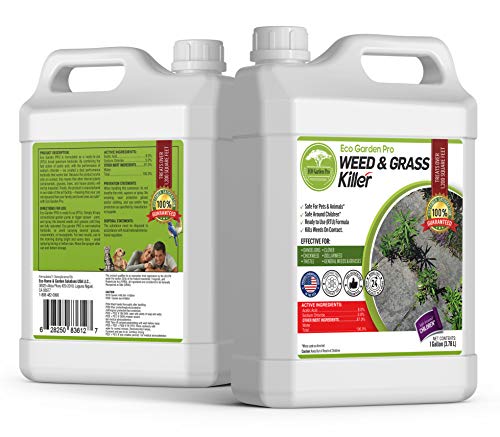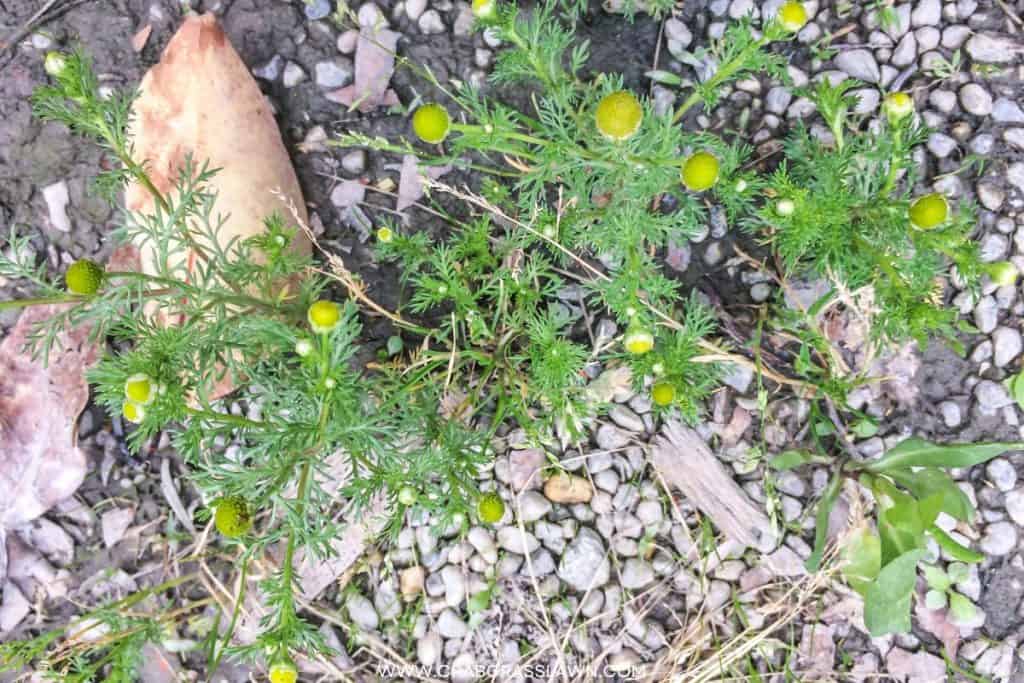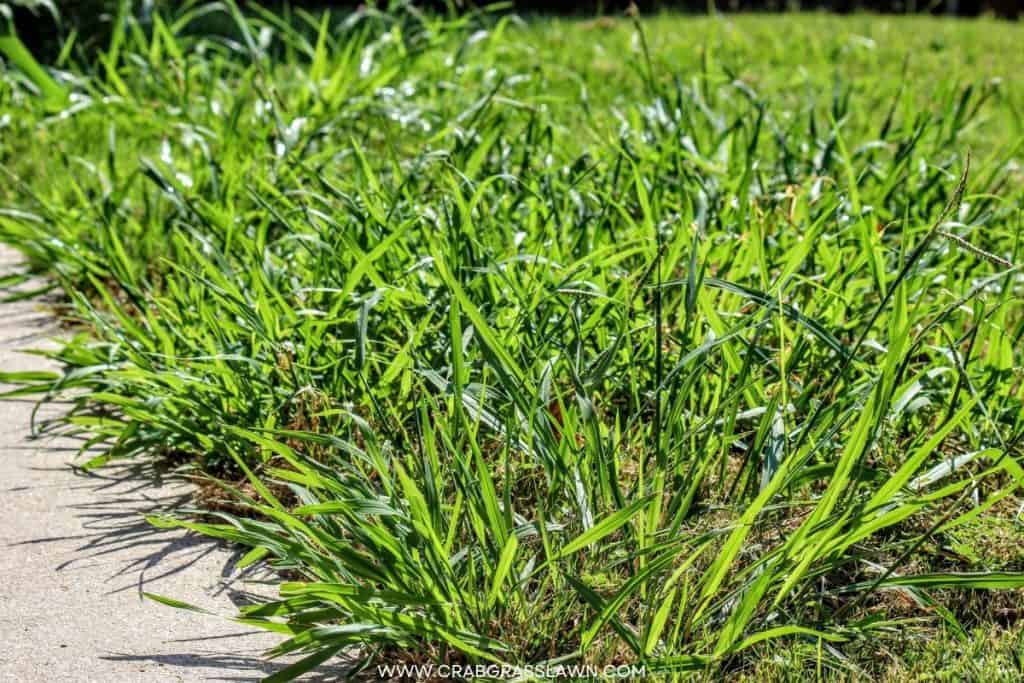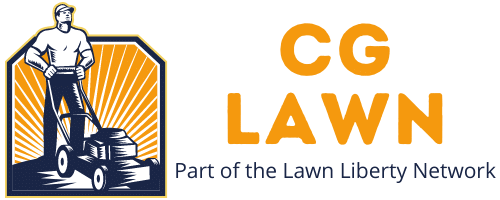Broadleaf weed killers make the process of getting rid of pesky weeds a whole lot easier. Both granular herbicides and liquid weed killers are great at eliminating troublesome weeds fast. As a bonus – some even work to prevent them from coming back.
Choosing the best broadleaf week killer can however be a bit overwhelming, given the many options available. But after trying several options, I’ve narrowed down on 15 best broadleaf weed killers and herbicides.
In a rush? These are the ones I recommend. Keep reading for more info on each.
CLICK on any option below to see Ratings and Reviews on Amazon
Affiliate links and images pulled from the Amazon Product Advertising API on: 2024-04-26
Top 15 Best Broadleaf Herbicides for Lawns
If you don’t have a specific project in mind or are just looking for general information, here are the 15 best broadleaf weed killers. Each has its pros and cons, so you can decide for yourself which is best for you and your lawn.
To rank the best broadleaf weed killers, I looked at thousands of user reviews across major online platforms. I assessed each herbicide based on its compounds, performance, and value for money. I also considered my own experience with the product.
1. Roundup Pro Herbicide Industrial Weed Control

In my opinion, Roundup Pro Herbicide Industrial Weed Control is one of the best broadleaf weed killers on the market.
While it is expensive, you can use it on turf, ornamentals, brush, roadsides, and other areas with dense weeds and foliage. It is a post-emergent weed killer – so weeds must exist on your lawn at the time of application.
I love using this stuff when I have a big area to clean up. It’s perfect for that overgrown area of lawn you have always wanted to tame.
Keep in mind that this is a non-selective herbicide and will kill any type of grass, shrub, or foliage. So use it with extreme care.
Pros:
Cons:
- Description: The complete broad-spectrum non-selective post-emergence professional herbicide for non-crop, industrial, turf and ornamental weed control.
- Target Pests: Annuals and Perennial weeds and Brush. See Product label for all listed pests.
- For use In: Residential and Commercial areas, Parks and Recreational areas. See Product label for complete list.
Affiliate links and images pulled from the Amazon Product Advertising API on: 2024-04-26
2. Ortho Ground Clear

Ortho GroundClear is a tough, concentrated formula that can kill all types of weeds in 3 hours. It’s waterproof within 1 hour, so you don’t have to worry about an unexpected rainstorm washing it away. It is a post-emergent herbicide, so you should only apply this product when weeds are growing.
I use Ortho GroundClear to control weeds in my driveways, sidewalks, under-decks, and gravel areas. Since I don’t like to weed whack (I get lazy at times), I also use it around fence posts, utility poles, and other areas to keep grass from growing around them.
The best part about it is that one application can last up to one year!
You will need to adjust the amount of water you mix with the concentrate according to the size of your lawn (24 fl. oz. with 1 gallon of water to cover up to 300 sq. ft.).
Follow the label directions that come with the product, and you’ll be fine. Make sure you have an herbicide sprayer so you can apply the herbicide to your lawn.
Pros:
Cons:
- Ortho GroundClear Year Long Vegetation Killer1 is a concentrate formula that kills weeds and prevents any re-growth for up to 1 year with a single application
- Fast-acting formula starts working immediately
- Starts to kill weeds and grasses in 3 hours
Affiliate links and images pulled from the Amazon Product Advertising API on: 2024-04-26
3. Southern Ag Surfactant for Herbicides

Surfactant for Herbicides is a wetting agent, not an herbicide. It increases the penetration, coverage, and effectiveness of almost any broadleaf weed killer. The surfactant boosts the efficacy of the herbicide by helping it stick to the weed leaves. This is especially helpful if you are spraying poison ivy or bush in large quantities
This stuff works great for getting your herbicides to work faster and harder. All you do is mix it with your favorite herbicide and spray it on the desired area.
- For most Herbicides: 1 teaspoonful per gallon
- For Round-up: 1 Tablespoonful per gallon
- For MSMA herbicides: 1 Tablespoonful per gallon
Pros:
Cons:
- Use with most pesticides to improve results
Affiliate links and images pulled from the Amazon Product Advertising API on: 2024-04-26
4. Monterey LG 5149 Pre-Emergent Weed Controller

Monterey LG is a pre-emergent weed killer that controls annual grasses, perennial grasses, and a host of woody shrubs. It can even clear established flower beds, vegetable gardens, and ornamental ground covers.
It works by coating the weed seeds and preventing them from sprouting and crowding out your grass. This will allow your grass to grow thick and provide it with the strength to be able to fight off weeds naturally.
You should apply Monterey LG in early spring before common lawn weeds start to germinate. I use it in my vegetable garden to control summer broadleaf weeds (including chickweed and prostrate knotweed).
I also apply it in late spring to prevent chickweed in late fall and early winter, then again in early summer to catch knotweed.
Pros:
Cons:
- Pre-emergent herbicide - vegetable and ornamental weeder is designed for the control of annual grasses and broadleaf weeds in ornamental trees, Ornamental woody shrubs, Ornamental groundcovers, roses, established flowers, and vegetable gardens.
- Seed control - this product controls weeds by killing Their seeds as they germinate, so it helps to prevent weeds from establishing. Soon, the weeds will be gone from your garden before they appear. However, it does not control established weeds.
- Easy application - apply vegetable and ornamental weed Killer to the soil surface, and then water in. This is one of the few weed killers that can be used in vegetable gardens.
Affiliate links and images pulled from the Amazon Product Advertising API on: 2024-04-26
5. Trimec Southern Broadleaf Herbicide

Formulated with less 2,4-D, Trimec Southern treats weeds in warm-season grasses. It is a post-emergent herbicide, so you will want to apply it after weeds emerge. It will kill broadleaf and grassy weeds such as clover weeds and chickweed.
With less 2,4-D, you can use it to control weeds in sensitive warm-season grasses, including on lawns, parks, golf courses, and other areas. Be sure to read the product label before using it.
Pros:
Cons:
- High degree of tolerance in sensitive warm-season turfgrasses
- Wide spectrum broadleaf weed control
- Economical clover control option - North or South
Affiliate links and images pulled from the Amazon Product Advertising API on: 2024-04-26
6. Spectracide Weed & Grass

Spectracide Weed & Grass killer does what it says. I have used this handy product for those pesky weeds that grow in my driveway and walkways and it works great. I noticed wilting in about 3 hours.
You should apply Spectracide in full sun during the hottest part of the day. It is rainproof after 15 minutes, so you don’t have to worry about it washing off in the rain or when you water your plants.
However, this also means that if you accidentally spray Spectracide on your ‘wanted’ plants, you need to wash the herbicide quickly to save them!
Pros:
Cons:
- Visible results as fast as 3 hours
- Replant flowers, trees and shrubs the same weekend
- Rainfast in 15 minutes
Affiliate links and images pulled from the Amazon Product Advertising API on: 2024-04-26
7. Roundup Crabgrass Destroyer

If you are looking to have a weed-free lawn, Roundup Crabgrass Destroyer is the best tool for the job.
It is a selective weed killer that kills the most stubborn weeds. That means you can spray it on your lawn and it won’t kill your grass. It is great to spot treat weeds including annual and perennial weeds.
You should only use Roundup Crabgrass Destroyer on cool-season grass. This includes Kentucky bluegrass, fine fescue, perennial ryegrass, and tall fescue. The fast-acting formula starts to eradicate weeds in as little as 4-7 days.
Pros:
Cons:
- Roundup For Lawns Crabgrass Destroyer₁ is a tough weed killer that is formulated to kill even the toughest listed grassy weeds, including crabgrass, foxtail, and goosegrass
- This product stops plant pigment production, causing treated weeds to turn white and stop growing
- Specialized formula kills crabgrass and grassy weeds at every stage of its life cycle
Affiliate links and images pulled from the Amazon Product Advertising API on: 2024-04-26
8. Ortho Weed B-Gone

Ortho Weed B-Gone has always been a tried and true product in my books that works great against ground ivy, creeping charlie, and wild violet.
It comes in two different versions: (1) ready spray or (2) concentrate. The ready spray connects to your garden hose, while the concentrate is used in a tank sprayer.
Since the ready spray connects to your hose it has a limited range. Despite that, it is a very effective way to spray a large area fast. The concentrate is great for the garden or out on the edges of your property where poison ivy and other noxious weeds grow.
Although the product label says it doesn’t kill your grass, it is hard on it. So take it easy and do not over-spray your lawn with this product. Remember — with systemic weed killers, the plant absorbs the chemicals through its leaves, not the roots.
It is best to apply this herbicide when weeds are actively growing. It is rainproof in 6 hours. To avoid drifting to desirable plants, spray when temperatures are below 90 degrees and the air is calm.
Pros:
Cons:
- Ortho Weed B Gon Chickweed, Clover & Oxalis Killer for Lawns Concentrate is formulated to kill tough weeds in your lawn (when used as directed)
- Kills listed weeds like chickweed, clover, oxalis, ground ivy, speedwell, and wild violet, and is rainproof in 6 hours
- Apply when weeds are actively growing and temperatures are below 90°F
Affiliate links and images pulled from the Amazon Product Advertising API on: 2024-04-26
9. Roundup Poison Ivy Control

If you have a tough job with a lot of brush to clear, then Roundup Poison Ivy Control is what you need.
This heavy-duty systemic herbicide doesn’t just kill the plant; it kills the entire root system. It works against poison ivy, poison oak, poison sumac, kudzu, wild blackberry, and over 200 different types of grass.
Add 6 fl oz per gallon of water and spray onto the leaves of the plants you want to kill. You don’t have to worry about it washing off because it is rainproof in 30 minutes.
If you are trying to kill larger trees and shrubs, the undiluted product can also double as a stump killer.
Pros:
Cons:
- BRUSH & POISON IVY KILLER: Roundup Poison Ivy Plus Tough Brush Killer kills over 200 types of weeds and grasses including Woody Brush and Vines, Poison Ivy, Poison Oak, Poison Sumac, Kudzu, and Wild Blackberry
- FAST ACTING: Visible results in as fast as 24 hours
- GUARANTEE: Kills weeds to the root so weeds don't come back. (If for any reason you are not satisfied after using this product, simply send us original proof of purchase and we will refund the purchase price)
Affiliate links and images pulled from the Amazon Product Advertising API on: 2024-04-26
10. Eco Garden Organic Weed & Grass Killer

If you prefer natural weed killers, Eco Garden Organic Weed Killer is a great choice.
The formula combines acetic acid and sodium chloride with white vinegar. It is a safe product designed with the safety of your family and pets in mind.
It kills annual and perennial weeds without harming your lawn. This makes it very useful for patios, driveways, gardens, and flower beds. This product is eco-friendly, phosphate-free, and 100% biodegradable.
Pros:
Cons:
- ✔️ PET & KID SAFE HERBICIDE - Eco Garden Pro Weed Killer is designed with you and your family in mind! All of our ingredients are carefully selected to be SAFE FOR: PETS, CHILDREN, BEES, FISH, AND ANY LIVESTOCK!
- ✔️ ORGANIC WEED KILLER - Formulated to KILL WEEDS AND GRASS FAST. Our proprietary formula will deliver IMMEDIATE RESULTS WITHIN 24 HOURS! Perfect for all residential, commercial, industrial, and agricultural use - including: driveways, sidewalks, concrete, mulch beds, pavement, flowers beds, parking lots, and farm lands.
- ✔️ WORKS within 24 HOURS POWERFUL PROPRIETARY FORMULATION - Our READY TO USE (RTU) formula contains natural white vinegar, organic rock salt, biodegradable plant activators, and fermentation derived co-factors, all designed to eliminate weeds and grass effectively and quickly.
Affiliate links and images pulled from the Amazon Product Advertising API on: 2024-04-26
11. Ortho Nutsedge Killer for Lawns

Ortho Nutsedge Killer works against yellow and purple nutsedge and 50 other late summer weeds.
It works on both cool-season grass and warm-season grass. Ortho Nutsedge Killer is ready to use with no mixing required. All you have to do is hook it up to a garden hose and spray it over your entire lawn.
For best results, apply to weeds when they’re less than 3 inches high. During the year, spray nutsedges as needed when they are actively growing. If regrowth occurs, you may need to apply again for hard-to-kill weeds.
Pros:
Cons:
- Kills yellow and purple Nutsedge, Kyllinga and over 50 other tough weeds
- For Northern and Southern turf grasses
- Kills Weeds, Not Lawns
Affiliate links and images pulled from the Amazon Product Advertising API on: 2024-04-26
12. Ortho WeedClear Lawn Weed Killer

Ortho Weed Clean Lawn Weed Killer targets common weeds like chickweed, dandelions, and clover. It is a liquid herbicide that comes with a magic wand sprayer. This means you can apply the herbicide directly onto the weeds without extra setup.
Because it is a selective herbicide, it won’t harm your grass. That said, you should still follow the directions for the correct application as overuse can potentially damage your lawn.
Pros:
Cons:
- Kill weeds without harming your lawn (when used as directed) with Ortho WeedClear Lawn Weed Killer Ready-To-Use1; kills major broadleaf weeds (see label for weed list), including dandelion, clover, oxalis, chickweed and more
- Delivers visible results in hours
- Kills listed weeds down to the roots and won't harm the lawn when used as directed, contains herbicides to kills over 250 types of weeds (see label for weed list)
Affiliate links and images pulled from the Amazon Product Advertising API on: 2024-04-26
13. Preen 2464110 Garden Weed Preventer

Preen Garden Weed Preventer is a pre-emergent granular weed killer. It is great for preventing weeds in the garden, flower beds, or wherever you don’t want them popping up.
Before I used this product, I was weeding my garden twice a week to keep up with it. With Preen, it prevents weeds for up to 3 months.
You can apply it any time of the year, but it is only effective on weed seeds and not established weeds. I apply it in the spring after I have planted my flowers and vegetables.
Pros:
Cons:
- Use anytime during the spring, summer, or fall in flower and ornamental garden beds, around ground covers, trees, and shrubs
- It prevents weeds and feeds plants in one easy step
- Balanced fertilizer promotes abundant blooms, increased yields and strong root development
Affiliate links and images pulled from the Amazon Product Advertising API on: 2024-04-26
14. Natural Armor Weed and Grass Killer

I like Natural Armor for two reasons:
(1) They are a small business and I love to support small businesses!
(2) The product is all-natural.
You can use it anywhere you don’t want grass and weeds growing. This includes flower beds, shrubs, trees, barns, driveways, edging, fence lines, foundations, gravel areas, and pool areas.
Pros:
Cons:
- CONTAINS NO GLYPHOSATE - Natural, Concentrated Formula STOPS Weeds and Grasses Right in Their Tracks. Weeds and Grass Will Look Like You Took A Torch To Them.
- EASY TO USE - Friendly for People & Pets. Ready To Use, Just Spray and Go. No Messy Mixing or Diluting.
- PLACES TO USE - Use Anywhere You Don't Want Weeds and Grass Growing Such As, Around Flower Beds, Shrubs and Trees, Barns, Driveways, Edging, Fence Lines, Foundations, Gravel Areas, Mulch Beds, Overgrown Weed Areas, Parking Areas, Patios, Pavers, Pool Areas, Rock Walls and Pathways, Walkways, Wells & Water Systems. Any Location Where No Vegetation is Wanted
Affiliate links and images pulled from the Amazon Product Advertising API on: 2024-04-26
15. Spectracide Weed Stop

Spectracide Weed Stop is a concentrated broadleaf weed killer. It targets around 200 species of weeds, including dandelion, clover, chickweed, and other common broadleaf weeds.
It is a systemic herbicide, so it will go down and kill the root of the broadleaf weeds so that they do not come back later. But, it is selective, so it will not ruin the rest of your lawn.
If you enjoy a perfectly manicured lawn but get triggered by annual and perennial weeds . . . This may be the product for you! Spectracide Weed Stop provides quick results within 24 hours and is water-resistant within 6 hours.
Pros:
Cons:
- KILLS WEEDS, NOT THE LAWN: Won’t harm lawns when used as directed – kills more than 200 types of weeds as listed
- CONTROLS ALL MAJOR BROADLEAF WEEDS: Controls dandelion, chickweed and clover (see product label for complete list)
- KILLS THE ROOT: See overnight results
Affiliate links and images pulled from the Amazon Product Advertising API on: 2024-04-26
Buying Guide: What to Consider When Choosing a Broadleaf Herbicide for Lawn
Before purchasing broadleaf weed killer products, you need to consider a few things:
- What weeds are you trying to kill?
- Are you spot-treating your yard or trying to kill everything?
- Do you want a pre-emergent to protect your lawn in the spring from new weeds?
- Do you want a post-emergent to control broadleaf weeds after they crop up?
- Do you want a synthetic or natural weed killer?
What Are Broadleaf Weeds?
Broadleaf weeds are easy to identify since they look nothing like grass. All broadleaf weeds have a wide leaf with a main vein in the middle and smaller branches growing out from it. Some may also have pretty flowers.
Broadleaf weeds come in both annual and perennial varieties. Blooms can be single or clustered. Fibrous roots can be large taproots, thin roots, or both. Some grow upright and some grow close to the ground out of the reach of lawnmowers.
Broadleaf weeds can quickly crowd your grass and make your lawn unpresentable. They also rob your turf of the water and nutrients they need.
Examples Of Broadleaf Weeds
Here are some common broadleaf weed types to look out for:
Broadleaf Plantain
Broadleaf plantain is a fairly easy-to-recognize perennial weed. It has broad green leaves that form a basal rosette and flowering stalks that appear from mid-spring through early fall.
Broadleaf plantains shed their leaves in the winter and regrow them again in spring. The seeds germinate between late spring and late summer. Unlike most weeds, it grows low to the ground so that it can avoid being cut by the lawnmower.
How to Control Broadleaf Plantain:
- Hand-pulling
- Pre-emergent weed killers
Buttonweed
Buttonweed is an annoying broadleaf weed found in turfgrass. It is common throughout the southeastern United States. It is easy to identify with four star-shaped petals on white tubular flowers.
Buttonweed has a deep root system that makes it hard to pull up by hand. The plant grows best in moist to wet soils and tolerates low mowing heights.
Pre-emergents cannot control buttonweed because it spreads by creeping roots. Maintaining a healthy lawn is the best way to control buttonweds.
How to Control Buttonweed:
- Digging the entire root out
- Broadleaf weed control

Chickweed
Chickweed is a low-growing annual that grows in winter and can tolerate a wide range of soils. Chickweed grows best in soils with high nitrogen content and a neutral pH balance. The plant germinates in December and January and grows every year.
How to Control Chickweed:
- Hand pull
- Herbicides
- Pre-emergents

Dandelion
Dandelions are one of the most common and troublesome weeds in yards. Because of their large tap roots, they can be tough to remove. To prevent dandelions from growing back, make sure you remove their entire roots.
How to Control Dandelion:
- Broadleaf weed killer
- Digging with a shovel or a dandelion removal tool

Clover
Clover is a common lawn weed with white flowers and identifiable three-leaved stems. It works as a forage crop for livestock, but can quickly get out of control and creep into other yards. Controlling clover is hard because any part of the root that remains can regrow into a new plant.
How to Control Clover:
- Dig with a trowel or shovel
- Post-emergent broadleaf sprays

Crabgrass
Crabgrass is a flat, annual weed that grows best in hot weather. Crabgrass is tough and can stand up to heavy foot traffic and can avoid mower blades.
When it goes to seed, it can produce up to 150,000 seeds! These will scatter over your entire lawn and wait until next spring to germinate. Crabgrass favors thin turf or turf with areas of bare soil.
How to Control Crabgrass:
- Pre-emergent herbicides
- Broadleaf weed killer

Prostrate Spurge
Prostrate spurge, also known as spotted spurge, often forms large mats over your yard, like clover. The leaves have an oval shape and a red stem in the center. This red stem is where it gets the name spotted spurge. It can cause a rash and irritate the skin when touched.
How to Control Prostrate Spurge:
- Post-emergent herbicide for existing plants
- Pre-emergent herbicide in spring
Types of Broadleaf Herbicide
Weed killers work by killing or preventing weed growth with chemicals. Different herbicides treat weeds at different stages of their life cycle, including controlling weeds before they sprout.
When choosing a specific weed killer, consider the following characteristics:
Pre- or Post-Emergent
The goal of pre-emergent weed killers is to kill the weed seedlings before they are established. This type of herbicide won’t work if weeds have already sprouted.
A post-emergent weed killer kills weeds during their active growing season. You can apply post-emergent weed killers directly to plant leaves. Read this handy guide on pre-emergent vs. post-emergent herbicides.
Systemic or Topical
A systemic weed killer targets the root system of the plants. Topical herbicides kill only the weeds in the area of application.
Persistent or Non-Persistent
Persistent weed killers stay active for a long period to prevent future growth.
Non-persistent herbicides only kill the current weeds in the area. They do not provide ongoing weed control.
Selective or Non-Selective
Selective weed killers eliminate weeds without harming healthy plants nearby. A non-selective herbicide will kill all vegetation including vegetables and flowers.
Synthetic vs Organic Broadleaf Herbicide
Choosing between a synthetic or organic herbicide is ultimately up to you and your needs. Each product offers its advantages and disadvantages. For example, do you want a more environmentally-conscious option, or do you want the weeds gone fast?
Synthetic herbicides contain chemicals produced in a lab. They work fast, but they can also carry a higher level of toxicity.
Organic herbicides contain chemicals and ingredients found in nature. They have less toxicity but may not work as efficiently.
Synthetic: 2-4-D Broadleaf Weed Control
2-4-D (2-4-Dichlorophenoxyacetic) is a highly effective synthetic chemical that disrupts the photosynthesis of the plant. It appears in many herbicides like RoundUp or Ortho.
The herbicide works systemically and selectively. It kills the weed’s roots as well as the parts it comes in contact with, but it won’t harm the rest of your lawn.
Organic Broadleaf Weed Killer
Organic broadleaf weed killers contain some or no synthetic chemicals. Instead, they rely on natural active ingredients such as:
- Corn Meal
- Acetic acid
- Citric acid
- Clove oil
- Cinnamon oil
Organic herbicides are better suited for killing smaller annual weeds rather than perennial broadleaf weeds. But remember, high concentrations of some organic weed control products can damage your lawn.
How Do You Kill Broadleaf Weeds but Not Grass?
If you are apprehensive about spraying weed killer on your lawn or around desirable plants, don’t worry. There are other ways to kill unwanted weeds without harming your plants or grass.
I recommend choosing a selective herbicide. This means that it targets weeds and not your plants.
Alternatively, you can apply pre-emergent weed control over your lawn to kill the seeds before they germinate.

What Does Broadleaf Herbicide Kill?
As the name suggests, broadleaf weed killers target broadleaf weeds. These are leafy plants with wide leaves, like dandelions, thistles, and creeping Charlie. It also targets the weeds that look like grass such as crabgrass and quackgrass.
While controlled application of herbicides should not harm your lawn, be careful as overuse can kill your grass.
What Is the Best Time to Spray for Broadleaf Weeds?
This depends on what type of weed you are trying to kill. If you are trying to kill seeds before they germinate, then you should use a pre-emergent in the spring. If you are trying to kill weeds that are already growing, then you should choose a post-emergent and selective weed killer.
When To Apply Pre-Emergent Herbicides
As I mentioned before, pre-emergents do not kill established weeds but instead kill the seeds before they sprout.
Pre-emergent weed killer can be applied any time of the year to prevent new seeds from germinating but the most effective time to do this is in the spring. Getting them early means you will have fewer weeds to deal with for the rest of the year.
When To Apply Post-Emergent Herbicides
If the weeds have already emerged, you need to apply post-emergent weed killers. This will help prevent established weeds from spreading and going to seed which is what you don’t want them to do.
Once they have emerged, they can spread fast so you must target these weeds as soon as you see them.
FAQs about Broadleaf Herbicides:
Q. What’s the Difference Between Grassy Weeds and Broadleaf Weeds?
A. As their name suggests, the leaves of most broadleaf weeds are wider than those of grass. Plants have oval, round, or square leaves and their stems are branched or netlike.
These weeds can also produce flowers and many seeds. Grassy weeds have long thin blades and resemble the grass in your yard.
Q. What is the Best Herbicide?
A. That all depends on what you are trying to accomplish and how you want to accomplish it. In my opinion, the best weed killers are non-selective, systemic weed killers. Yes, they can kill your grass and vegetables but you just have to be careful.
Q. What Kills Weeds Permanently?
A. No weed killer will permanently keep weeds away but some can prevent weeds from growing back for up to a year. If you are looking for serious lawn weed control, then check the label. It should tell you what weeds it will prevent and for how long.
Q. What Is a Safe Weed Killer to Use?
A. Natural herbicides are safer weed killers that won’t be a danger to pets or family members. They use active ingredient(s) like vinegar, cornmeal, clove oil, acetic acid, citric acid, or cinnamon oil.
Q. Is Roundup a Broadleaf Herbicide?
A. Roundup comes in many different varieties that target a variety of different weeds. Glyphosate is the active ingredient in Roundup. It is a broad-spectrum herbicide that targets broadleaf weeds, grasses, and woody plants.
Final Thoughts on Broadleaf Herbicides
When it comes to the best broadleaf weed killers, you need to be certain of what you are using them for. I recommend asking yourself a few questions such as what type of weeds you have, do you need non-selective herbicides or selective weed killers, and would pre-emergent or post-emergent herbicides work.
References
- https://extension.umn.edu/weed-identification/annual-broadleaf-weeds
- http://ipm.ucanr.edu/PMG/WEEDS/broadleaf_plantain.html
Hi, Alex Kuritz here. Growing up I remember that my family had one of the best lawns in the neighborhood. Richly green and lush. I did a lot as I grew up in terms of caring and tending for not only my family’s lawn but also my neighbors. I can say I have years of experience, and I am here to share it with you.



